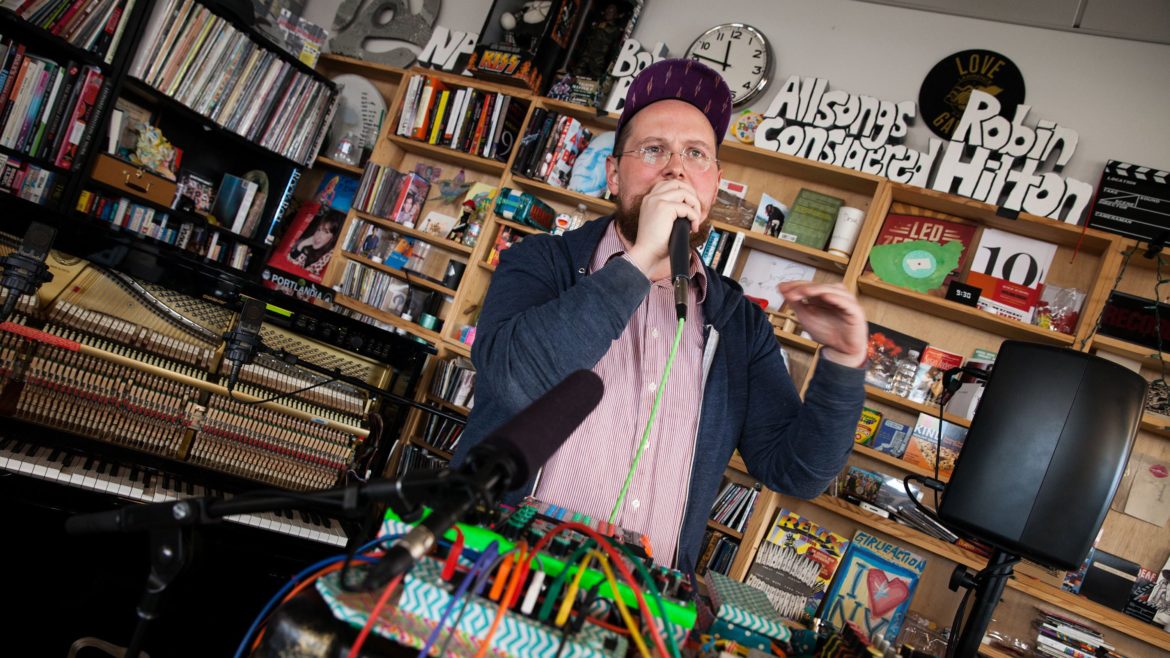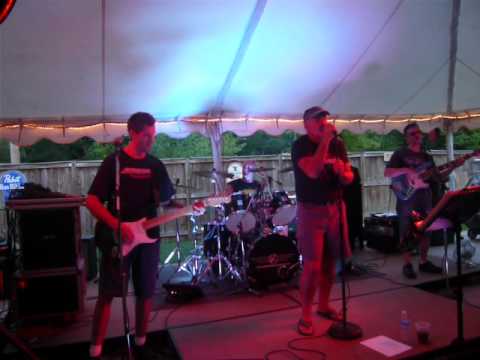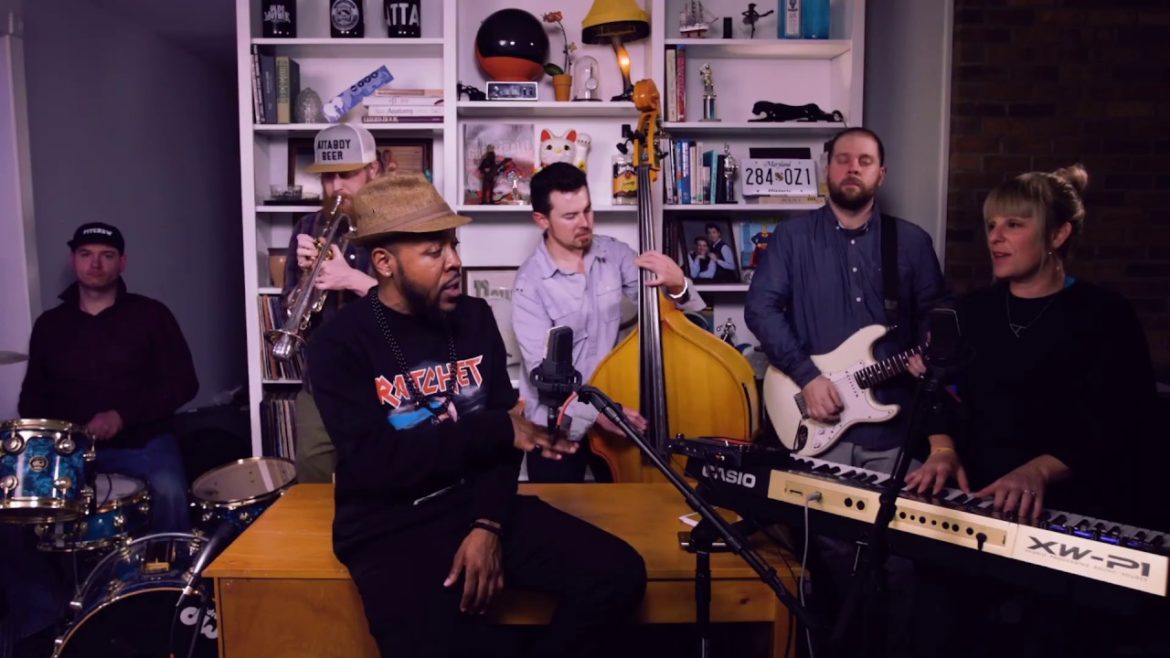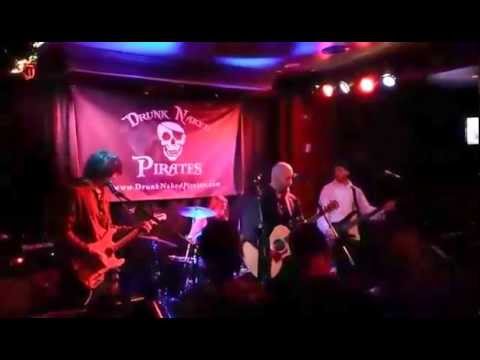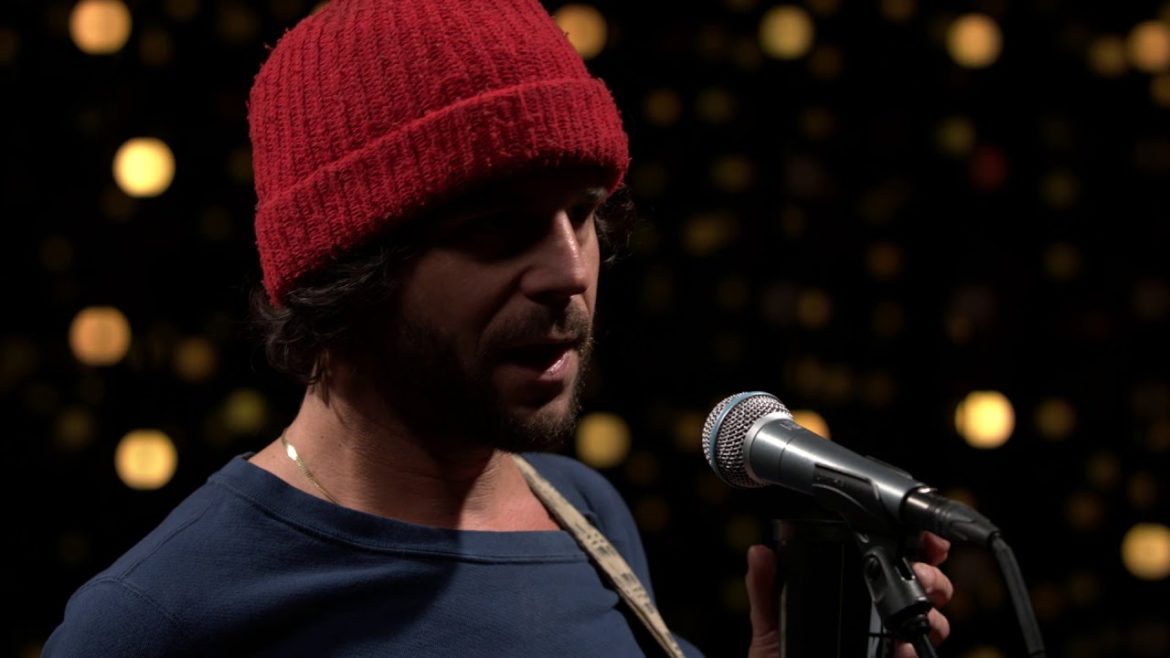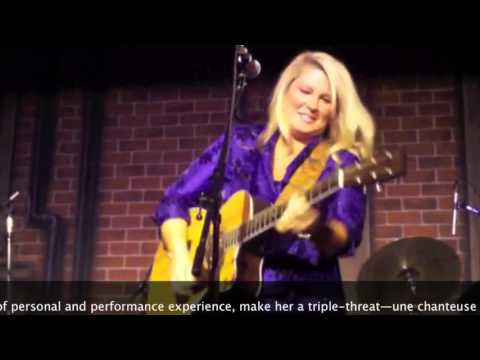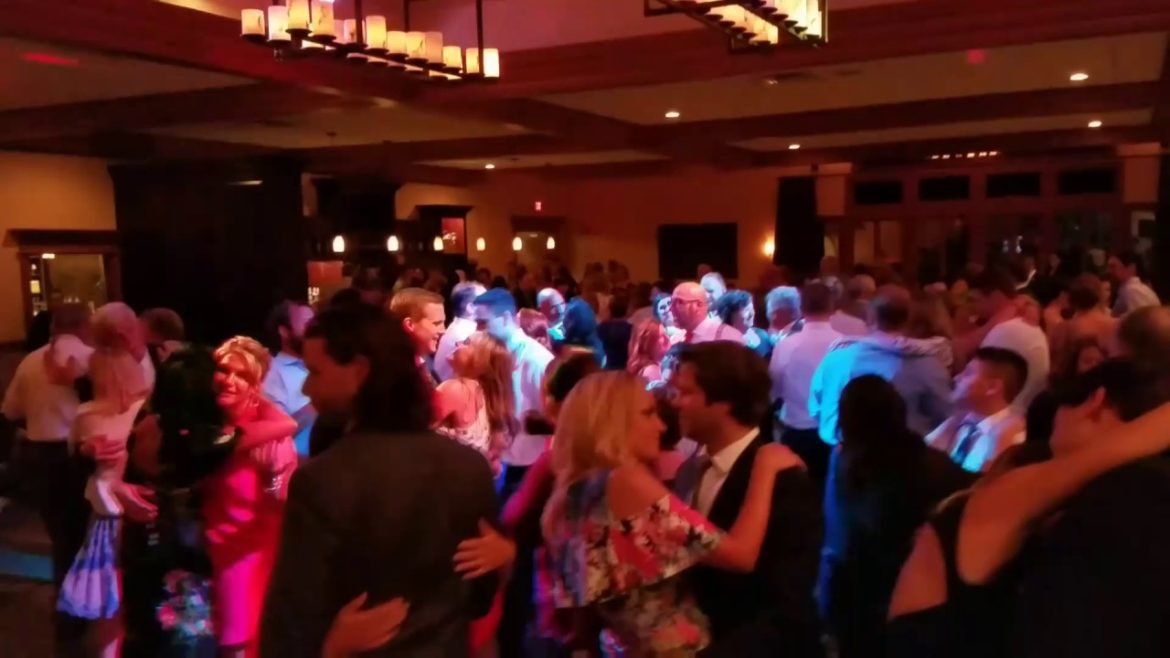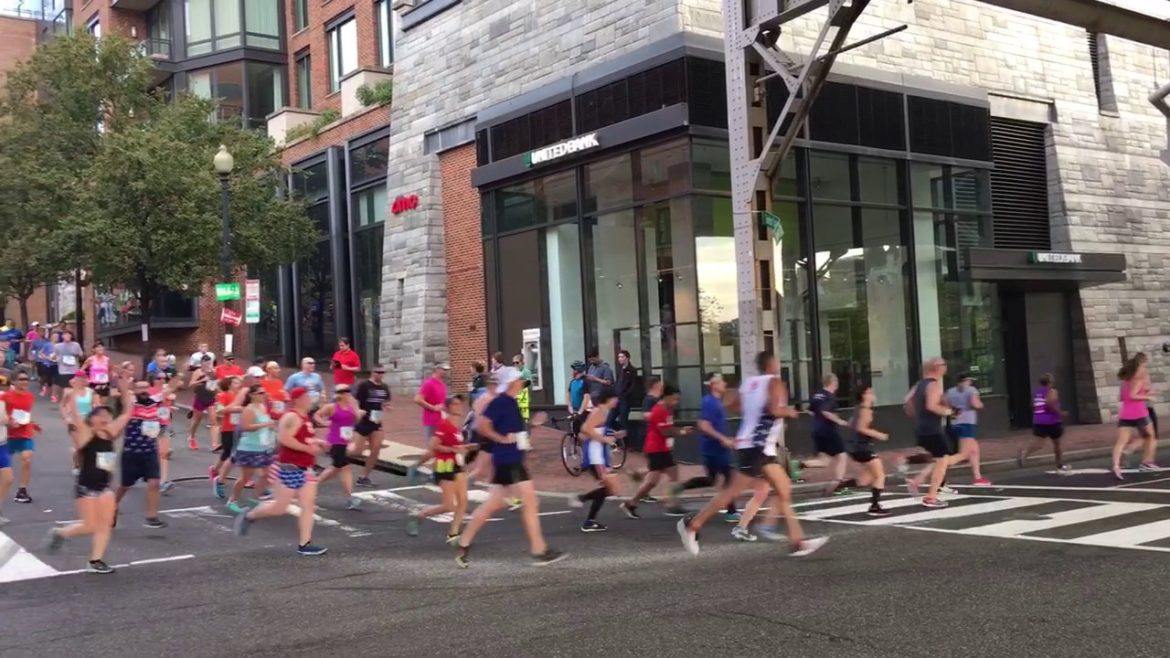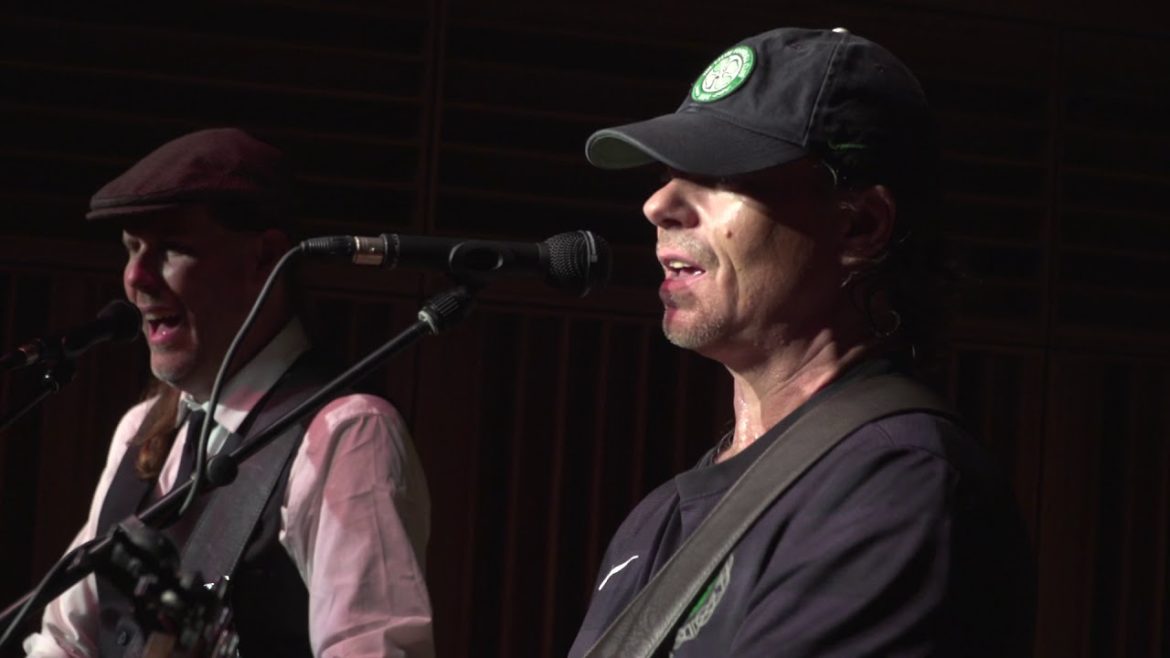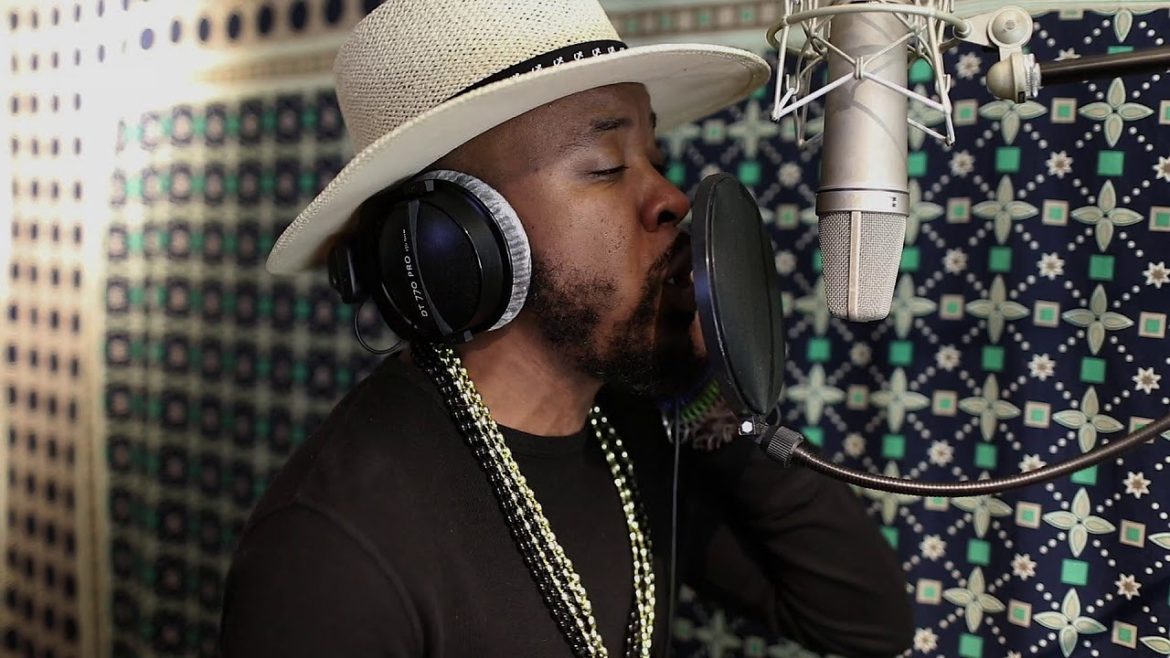When it comes to work, Dan Deacon is as restless as the pulsating electronic beats on “Gliss Riffer,” his most recent solo album. The Baltimore-based producer is in the middle of finishing a new record (“Gliss Riffer” dropped in 2015) while simultaneously scoring a feature film. In the past year, he released “Rat Film” — the soundtrack to an indie documentary of the same name — produced an album for Ed Schrader’s Music Beat, and scored yet another documentary, “Time Trial,” a deep look at the decline of pro cycler David Millar.
Deacon’s bringing his experimental sound to Flying Dog Brewery on Saturday for the 2018 Summer Sessions concert series. He called before the show to chat about music, work, and “Rat Film,” a look at how institutional racism has shaped the way Baltimore looks today.
I wanted to start with “Gliss Riffer” because a lot of people said it was one of your most accessible albums yet. Then you turned around and made the soundtrack for “Rat Film,” which is a completely different sound. What was that like for you as a musician — did you have to switch to a completely different mindset?
Deacon: Well, with a soundtrack, it’s almost like a parallel career, kind of. The music has to fit the film more than it does my current trajectory. And I think that’s why I like working on them so much. I can experiment and try other things out. Like, if “Gliss Riffer” didn’t come out and “Rat Film” was the next record, and it wasn’t attached to a film, I think it would have bewildered people. You know what I mean? But in the context of the film, it helps complete the story.
How did you get involved with “Rat Film?”
Deacon: I’ve known Theo [Anthony], the director, for a few years around town in Baltimore. And we had talked about working together on a project, and then this film came up. It started out as a short, and then Theo started seeing all the places it could go and expanded it into a feature. And my role continued to expand into scoring it.
And why did it appeal to you?
Deacon: I liked how it progressed. Like, when we first started, he wanted to make a performance where somehow rats were controlling the environment, controlling the performance. So, he asked me if I could come up with a way where I could make music with rats. And we sort of built it from there.
How did you do that?
Deacon: We built this enclosure, like a large Plexiglass enclosure that had three theremins, one in each corner. A theremin is an electronic instrument that creates different sounds based upon proximity, how close you get to it. So, as the rats ran around this enclosure, they created different pitches and harmonies and textures.
Obviously, “Rat Film” addresses a lot of economic and social issues that Baltimore is still facing. And I was wondering, after 14 years in the city, are those issues something you’ve noticed and picked up on?
Deacon: Oh, 100 percent. I mean, it’s definitely still a very segregated city. There’s corruption, and the systematic, institutional racism is rampant. I feel like Baltimore is a microcosm of the United States in many ways, and you definitely feel it when you live here.
Well, you’ve done a whole album, “America,” that was inspired by your thoughts while traveling across the United States. Did some of those same social issues inspire that record?
Deacon: Well, with “America,” it was more about who I was as an American. Like, realizing that I am American and that I am part of a problem. This was, like, seven years ago now, and when I think about when I was in that mindset, I just kept thinking about how the goal of the political establishment is to make people feel powerless. That their problems are so large they can’t be fixed. And they want people to be apathetic to it.
But, I mean, culture has drastically changed. People are much more politically motivated and outspoken, and artists talk about it. Like, if you go back and read the reviews of America coming out in 2012, people were not into the idea of there being a pop record, an electronic record, that had political overtones and undertones to it. And that seems like 1,000 years ago when you look at today, where if artists aren’t political and don’t include their viewpoints, they’re almost called out for it. At the time, I think I was trying to look at a situation and not think of myself as external to it. Like, I exist in this system and I benefit from some things that I find to be repulsive. So, the only way I can make peace with that is if I try to actively change that system.
How has your current trajectory as an artist evolved since then?
Deacon: Well, that’s a good question. I’m very interested in scoring film. I’m in the middle of scoring another film now. Simultaneously, while finishing up my next record. And I worked with the New York City Ballet recently and that was really fun. I’d love to work on more stage productions and dance productions. It’s just fun to write a wide variety of music. For a few years, I was writing almost exclusively pop music, and then every once in a while, between albums, I would write some experimental music for a standalone performance, like with the Kronos Quartet. But none of that ever got recorded or documented. They’re just very ephemeral, momentary pieces, if that makes any sense. So, with these scores, it allows that [experimental] side of me to expand. And I think because of it, I can dive a little harder into the pop music aspect for my regular albums. Because I’m releasing more esoteric music on the side.
It’s interesting to me to hear you describe your albums as pop. Because I think if people pictured “pop music” and then heard one of your records, they would have visualized something entirely different. It wouldn’t be the same definition.
Deacon: Oh, sure. No, you’re 100 percent right. I mean, speaking in the broadest of terms, I just don’t know how else to describe my music. Some of [my records] have legitimate experiments involved. So, I guess they’d be experimental. But I would say that they would still be in the sphere of pop music. Like, if I were to go to a record store and I saw “Gliss Riffer” in the experimental section, I would think they had a limited experimental section, you know what I mean? There’s music being made that’s just, like, balloon sounds and different chemical reactions and transpositions of radio waves in space. My music is predominantly in a pulse you can dance to and has melodies you can sing along to. That’s the root of pop music. So, I think that’s why I would call “Gliss Riffer” a pop record and “Rat Film” more of a experimental-leaning record.
When you first set out to become a musician, did you envision yourself making some type of pop music? Is that what you set out to do?
Deacon: Kind of. I started making music like this in college, I guess. I toured mostly house shows, and house shows are basically parties where a band plays. And when I was in college, the noise scene was very popular, so there were a lot of just harsh noise acts. Like, no beat, no melody. I really liked being in juxtaposition to that — getting up there and playing songs on a Casio keyboard and trying to get people to dance. But what I actually went to school for was the more experimental composition. So, I did always have that inside of me. But it was much harder to tour that around the country because it takes, like, an orchestra or a string quartet. And I didn’t have any money.
But you have done some pretty high-profile collaborations, right? I read that one of your earlier scores was actually for Francis Ford Coppola.
Deacon: Oh, sure. That was back around 2010 and Francis heard me doing an interview on — I can’t remember which show. I think it was one of the national NPR shows. And I was talking about how music has the benefit of existing as a finalized document that’s set in stone. But then, you can also perform it night after night and the live version is so different from the recorded version. There’s not even a definitive comparison; they’re just completely different things. Or, like, with theatre, you have the written script, but it’s performed differently every single time. But with film, all it is, is the final edit. And once that’s set, it’s set, unless you George Lucas it to death or something.
I guess that created a spark in Francis and he wanted to get together and talk about breaking a breathing, editable, malleable cinema. He sort of picked my brain on that concept, and we started working together. It never really came to fruition with our initial concepts, but it was insane to work with him. He’s definitely one of the great artists of the 20th century and worked in film in what was — in my opinion — one of its heydays. Largely thanks to his vision. So, it was insane. When he emailed me and flew me out to his compound, I was like, ‘Is this an elaborate kidnapping scheme? Like, what the hell is this? Why am I going to meet Francis Ford Coppola?’
And you said the initial concept didn’t really come to fruition, but you did end up scoring his film “Twixt,” didn’t you?
Deacon: I did, yeah. But there was initially a whole live aspect to it. It was going to be a tour where he would edit the film live and I would edit the music live and we would change it from night to night, depending on the audience. That part we never did together.
Have you scored any other films recently?
Deacon: I did. I scored a feature called “Time Trial,” which is in theaters now in the UK and toured the whole festival circuit last year. It’s by a Scottish director, Finlay Pretsell. I guess the other thing I did, now that I’m remembering, is I produced a record by the band Ed Schrader’s Music Beat. I had never produced another band before, so that took an insane amount of time, just writing all the songs together from scratch and sending everything back and forth. But it was a really fun project. I definitely learned a lot and they’re two of my closest friends and I’m really happy with how the record came out.
You’ve had this kind of varied and esoteric career, so I was wondering if there’s ever pressure on you to produce music that’s more mass-market or broadly appealing?
Deacon: I luckily don’t feel any pressure like that. I exist in a weird little pocket and I like living there. I don’t feel any pressure to do anything but follow the river, you know what I mean? I really like where my musical trajectory has brought me and how accepting my fan base is to all the choices and experiments I make. To try to have more mass appeal — I feel like if I tried it, it would be a weird, forced thing. And if it came naturally, it would come naturally.
On the other hand, do you feel like your work is starting to reach a broader audience? Because at this point, you’ve toured with Arcade Fire on their Reflektor tour and Miley Cyrus asked you to join her Dead Petz tour.
Deacon: I don’t know. I kind of feel like that was Miley and the Flaming Lips being like, ‘Let’s see what’s the weirdest thing we could do.’ But yeah, after that tour and the Arcade Fire tour, there are certainly experiences that I didn’t think I’d ever have as a musician and I’m really grateful for both of them taking me on the road. But, I don’t know. I try not to think about it so much. I’m just happy anyone comes to see me. Like, I’m psyched.
Did touring with Miley Cyrus make you wish you had that kind of reach, where your albums are selling millions and millions of copies? Or did it make you grateful that you occupy the niche that you occupy?
Deacon: I don’t think it made me want either. Like I said, I’m happy just to be able to make music. That’s how I define myself and how I provide for myself and my family. I’m very grateful for that. I don’t know what it would be like to sell millions and millions of records. And I guess if I sold millions of records, something crazy would have to happen to the entire world. Like, it’s a pretty weird music for it to all of a sudden be on the radio on a mass level. There would have to be this massive cultural shift. So, I’d be more confused than anything else. But I would gladly welcome it (laughs).

